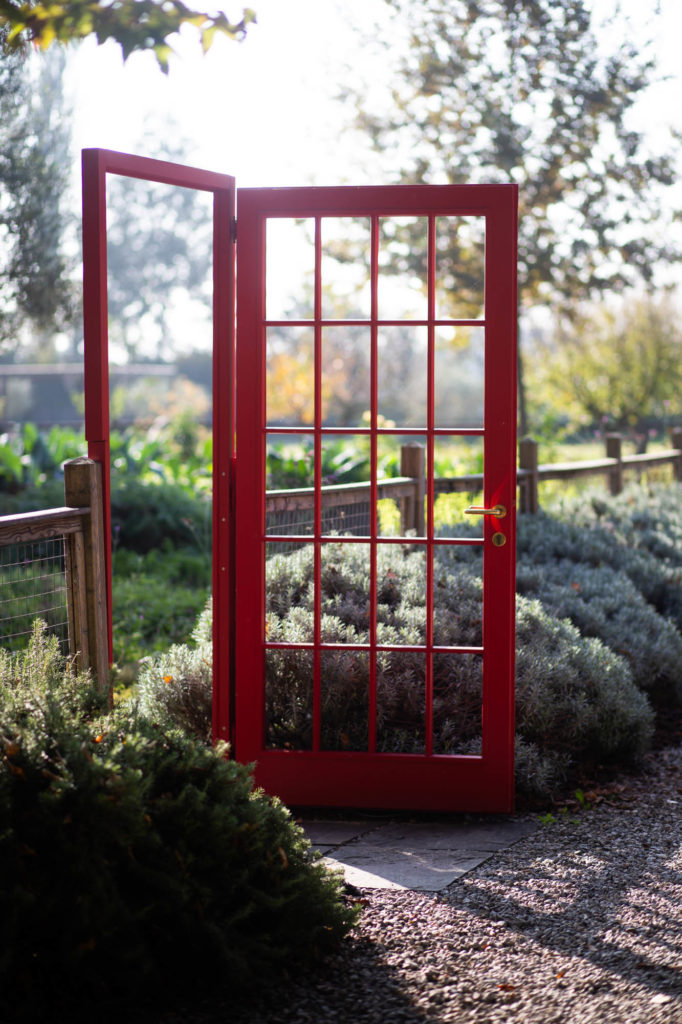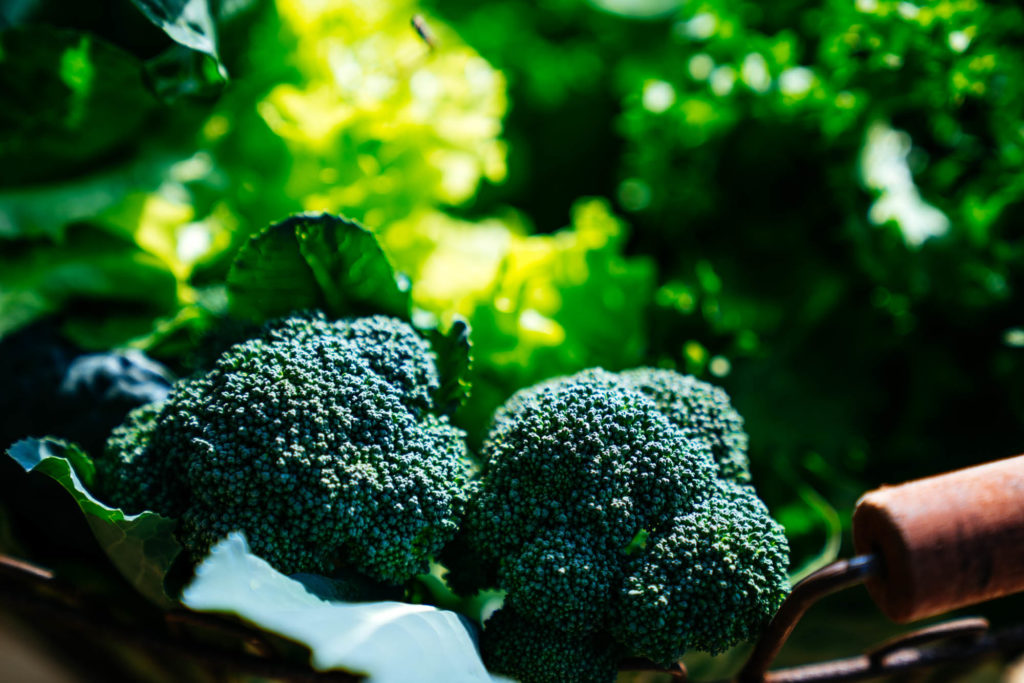SUSTAINABILITY
A CAT WITH A GREEN SOUL
Sustainability is deeply rooted in the Al Gatto Verde restaurant project. It is woven into every aspect of the restaurant. Rather than constructing anew, we repurposed and revitalised an existing structure that was previously used for bottling of balsamic vinegar at the Acetaia across the courtyard. This not only prevented further land consumption but created a deeper connection to the historical past. Adjacent to Al Gatto Verde the Acetaia houses over 1,300 barrels of Traditional Balsamic Vinegar from Modena.
While the bottling warehouse became the dining room, by partially enclosing an outdoor portico with sliding glass doors, we were able to create an open-plan kitchen with natural light, ventilation and connection to the great outdoors. Both spaces optimise natural light and offer views of the courtyard and gardens.
The entire building was equipped with a state-of-the-art photovoltaic system located on the roof that generates 40 kWp of electricity. This enables us to be energy independent, including the vinegar factory, car and art Playground, as well as two electric vehicle charging stations in the parking lot.
The structure is equipped with a rainwater harvesting system. The collected water is used for irrigation in the vegetable garden, vineyards, and surrounding gardens. In addition, a portion of the water is collected into underground cisterns, where it undergoes purification and filtration.
The heating and cooling system is equipped with a high-efficiency air-to-water heat pump using an eco-friendly refrigerant that is coupled with a fan coil unit with an inverter.
Within the premises, various measures have been implemented to safeguard environmental sustainability, both in the restaurant’s processing equipment and in the selection and care of furnishings. The kitchen is equipped with electric induction cooktops, completely eliminating the use of gas stoves.
The wood-fired oven is equipped with a grease and soot abatement system (produced and guaranteed by Smokie Model Maxi Grill 350). This system ensures a 95% reduction in particle matter with parameters ranging from 6.5 to 8.5 mg/m³, well below the regulatory limit of 50 mg/m³.
All of the restaurant’s furnishings are custom-made from natural materials such as wood, textiles, and copper. This completely eliminates the use of plastic products, which can be harmful to the environment throughout their production cycle.
Another distinctive feature of Al Gatto Verde, highlighting our commitment to environmental sustainability, we have made significant efforts to reduce waste in the kitchen. We are virtually plastic-free. Additionally, we have implemented a system for the intelligent use of green waste. Trimming and cuttings, from vegetables and landscaping, are collected in a designated composting area (along with kitchen scraps) for use as natural fertiliser.
In August 2022, a wind storm struck Casa Maria Luigia and five century-old oak trees were severely damaged. It took three weeks to clear the park and salvage the wood from the fallen trees. Exactly one year later, Al Gatto Verde is using the wood for cooking in the grill and wood-fired oven. In addition to oak, we also use trimmings of cherry and acacia, pruned branches from cedar trees, rose petals, trimmings and flowers of elderberries, and the abundance of aromatic herbs planted in the five-hectare bicentennial park to enhance the dishes.
One hectare of the park is dedicated to fruit trees and a vegetable garden for growing vegetables and herbs, which are used at both Al Gatto Verde and Casa Maria Luigia. For the meantime, we do not have greenhouses and prefer to support local producers and farmers.
Raw materials are bought from small organic producers who prioritize animal welfare and environmental sustainability. One of our partner is Regnani, a traditional pork butcher in Serramazzoni, Modena, since 1955. They produce cured meats like zampone and cotechino using only freshly slaughtered meat and cuts such as shoulder, head, neck, and rind.
Zivieri is our long-standing supplier, with a 100-hectare organic farm and butcher shop nestled among woods and meadows. For two decades, he has supplied the Francescana Family. Fattoria Zivieri is home to over 350 livestock,raised in semi-wild conditions: Biella sheep, Val Nerina goats, Romagnola, Piedmontese, and White Modena cattle,Parma black pigs, Cinta Senese and Mora Romagnola pigs, horses, and donkeys. Animal welfare is at the heart of their farming practices. Each animal is raised with care and attention, respecting its natural growth rate in a semi-wild environment. During the night or in harsh weather, the animals rest in stables with indoor boxes and outdoor paddocks. In the morning, each herd is led to graze in different areas of the property. The animals are free to graze and feed on what nature provides according to the season, supplemented with Apennine cereals, and are allowed to grow at their natural pace.
Free-range chicken farming in the Bolognese Apennines is based on a philosophy that allows animals to grow naturally outdoors, feeding on wheat, vetch, flax, corn, barley, and alfalfa, without antibiotics or GMOs. The supply chain is traceable and controlled, with a detailed identity card accompanying each cut. Zivieri also focuses on game, prioritizing animals hunted through selective or controlled methods. This supply chain was created and developed in collaboration with the Bologna Local Health Authority in 2013.
Furthermore, over half of the wines on our wine list are organic, biodynamic, or ‘natural wines’, whether certified or not.

